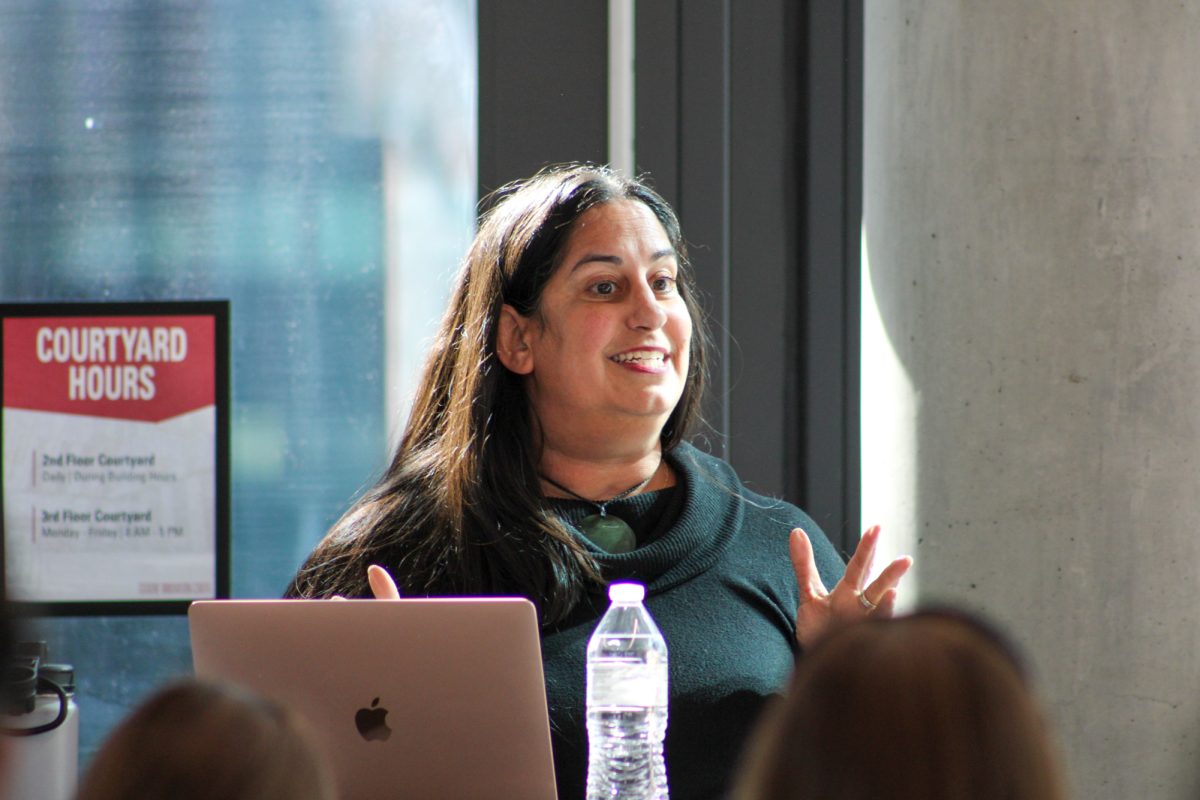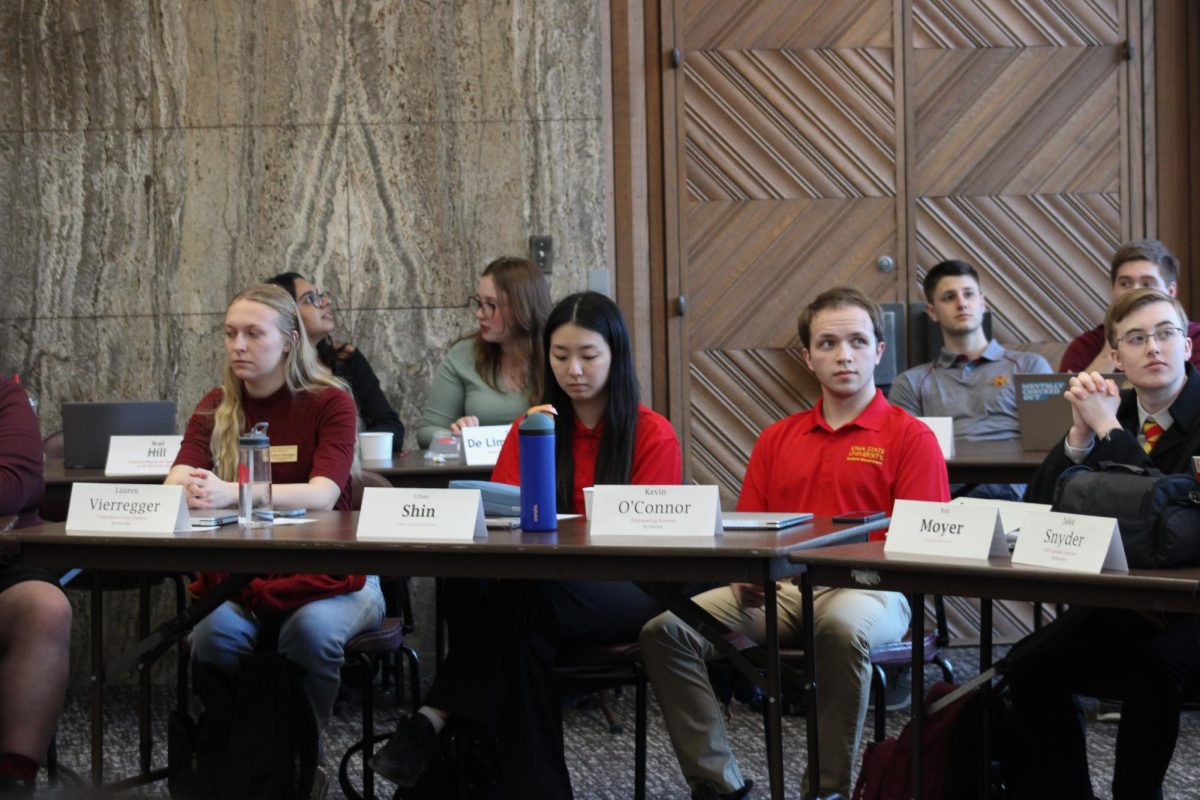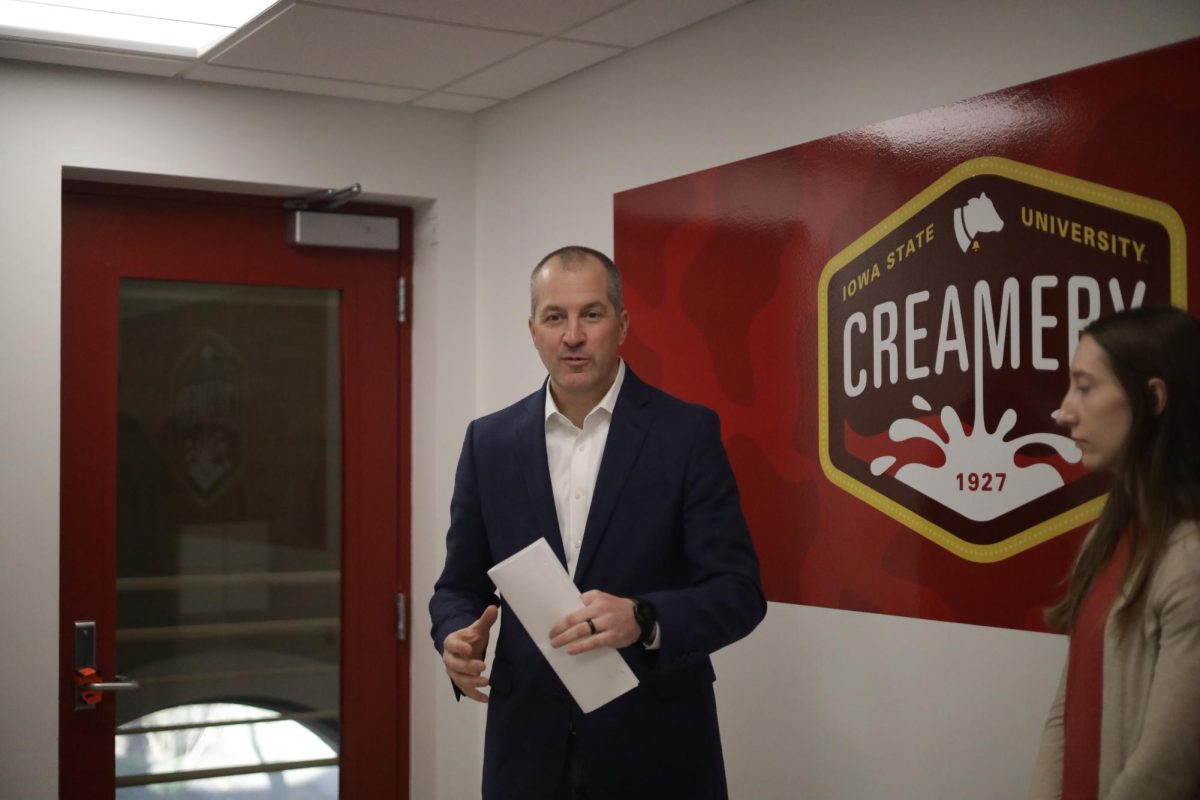Food Dialogue panel discusses safety of GM food
November 20, 2013
Concerns over genetically modified organisms in food was the topic of conversation at the Food Dialogue Forum.
Wayne Parrott, professor in the department of crop and soil sciences at the University of Georgia, said the growing of GMO foods are the most studied foods in history.
“We have over 600 referred publications on the topic, and on top of that because of our global market they have been reviewed by the [Food and Drug Administration] in the U.S. … but also by the FDA equivalents in all major export markets,” Parrott said.
Dave Murphy, founder and executive director of Food Democracy Now!, disagreed with Parrott’s view and said that it is not factually accurate to say genetically modified food is well tested.
“Right now, there’s over 230 scientists that are just signing a letter, getting started, to talk about the fact there is no real consensus on the science behind genetically engineered food on whether it’s safe,” Murphy said.
Murphy also commented on the history of labeling GM foods in the United States.
“A political decision by political appointees in the first Bush Administration overrode the Food and Drug Administration’s own scientists,” Murphy said. “Their own scientists that said that genetic engineering increases risks for known toxicants and allergic responses.”
Parrott questioned a French study cited by Murphy that showed GMOs can cause cancer.
“The missing detail there is he used a strain of rat that normally gets tumors anyway; the natural tumor rate is 80 percent before they’re two years old,” Parrott said.
Larry Cleverly, an organic farmer in Iowa, stated that consumers are entitled to know what is in the food they are buying.
Cleverly also asked the question of why there had been no long-term research studing the effect of GMOs.
Parrott said there are no long-term lab studies available simply due to the unwillingness of humans to participate in this type of study.
“We just don’t have any good laboratory strains of humans. Do you want to volunteer for a diet of GM corn for the next 20 years inside a confined room?” Parrott said.
Concerns about labels implying food is unsafe were also addressed. Murphy believes that the American people are smart enough to understand what a label means.
Katie Olthoff, an Iowa turkey farmer, said labels can be confusing, especially for those who are not involved in agriculture.
“On our farm we raise turkeys, we do not grow corn and soybeans, and so honestly I turn to professionals and scientists for the answers about whether GMOs are safe,” Olthoff said. “Will a label tell me whether or not GMOs are safe? I don’t think so, but they will probably give the impression that GMOs are dangerous.”
The Food Dialogue was put on by the Iowa Corn Promotion Board, the U.S. Farmers and Ranchers Alliance and the Iowa Corn Growers Association. More information and the video of the panel can be found at www.fooddialogues.com.






